Home Blog Details


Home Blog Details


Post By Autozcrave || 2025-05-26
Paint Protection Film, commonly known as PPF, is one of the most popular ways to keep your car’s paint looking fresh and protected from scratches, chips, and UV rays. However, one concern that many car owners have is Does PPF remove paint when taken off? Or in other words, does removing PPF damage paint?
In this blog, we’ll explore why paint sometimes gets damaged when removing PPF from a car and how you can avoid this problem. If you’re thinking about installing or removing PPF, this guide is a must read.

PPF is a thin, transparent film that is applied over your car’s painted surface. It protects your vehicle from:
It’s like a second skin for your car’s paint. When installed properly, PPF can last for 5 to 10 years, depending on the film’s quality and how well the vehicle is maintained.
This is a common concern. Under normal conditions, removing PPF should not damage your car’s original paint. Factory paint jobs are usually strong and well bonded to the metal surface. However, in some cases, paint damage does occur during PPF removal, and it’s important to understand why.
Here are the most common reasons why paint gets damaged when removing Paint Protection Film:
This is the main reason. This problem mostly occurs in repainted cars. Aftermarket paint jobs don’t always have the same level of adhesion and durability as the factory paint. The clear coat and paint layers in repainted cars can peel off more easily when the PPF is pulled away, especially if the paintwork was not done professionally.
Low quality PPF films tend to harden and become brittle over time. If a poorquality film has been on the car for too long, it can stick too strongly to the paint. When removed, it might peel the paint or clear coat along with it.
PPF should always be removed carefully and with the proper technique. Some people try to peel it off quickly, like a sticker. This is a mistake. PPF should be removed slowly, and sometimes with the help of heat (like a heat gun or hair dryer) to loosen the adhesive. Pulling it off too quickly can tear the paint, especially on edges and corners.
If the car surface was not cleaned properly before applying the PPF, or if there were already paint defects like bubbling, chips, or poor adhesion, removing the film can make these worse. The adhesive in the film can grab onto weak areas and lift them off with it.
Cars that have been under the sun for years without proper care might have weakened clear coats. When PPF is removed from such areas, the heat damage to the paint surface can lead to flaking or peeling.
Now that you know the risks, here are a few ways to avoid damage when removing PPF:
Certified installers and detailing studios know the proper techniques for both installing and removing PPF. If your car has been repainted, inform them in advance so they can take extra precautions.
Heat helps soften the glue on the PPF, making it easier to peel off. This reduces the risk of pulling up the paint.
PPF is durable, but it’s not forever. Leaving it on too long (over 7–10 years) can make removal harder and riskier, especially if the film has yellowed or cracked.
If any part of your car has been repainted, let the detailing or PPF expert know. This helps them use the right removal method and reduce the risk of damage.
The answer is: It can, but only under certain conditions.
PPF is a great investment for car lovers who want to protect their paint, but it's important to understand the risks involved with removal. Always choose a trusted brand and certified installer, and don't hesitate to ask questions about how they plan to remove the film when the time comes.